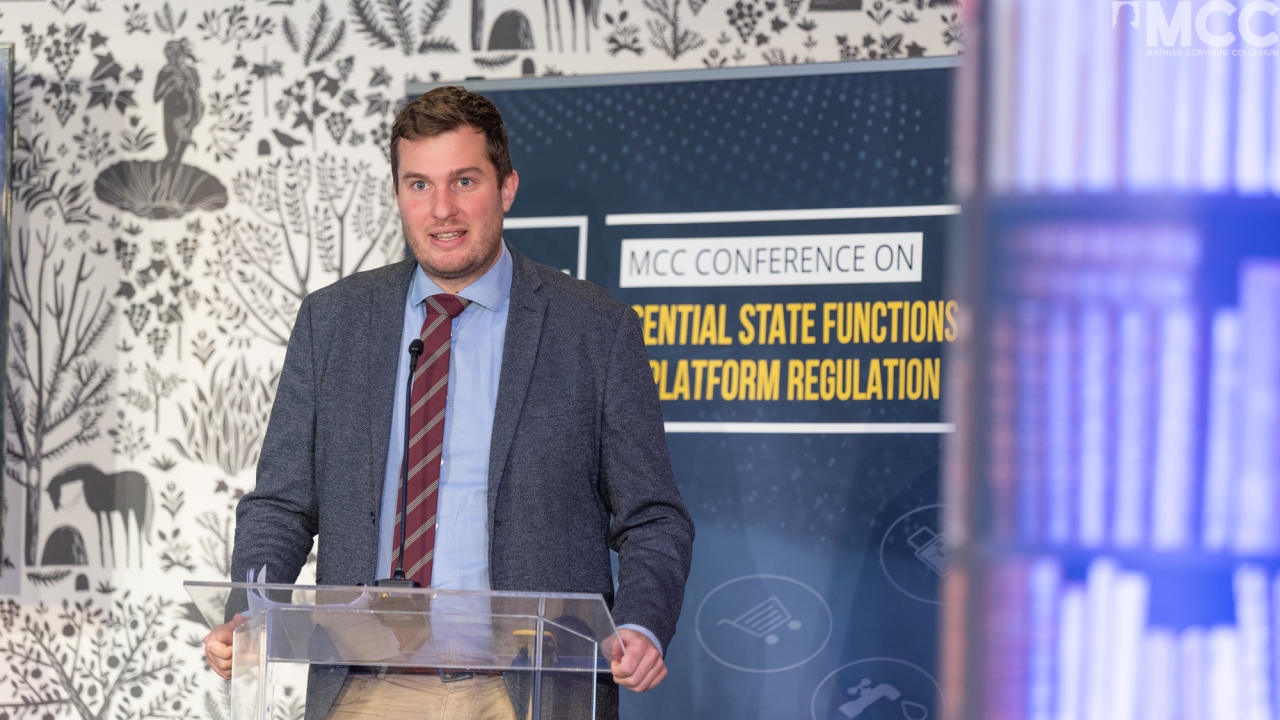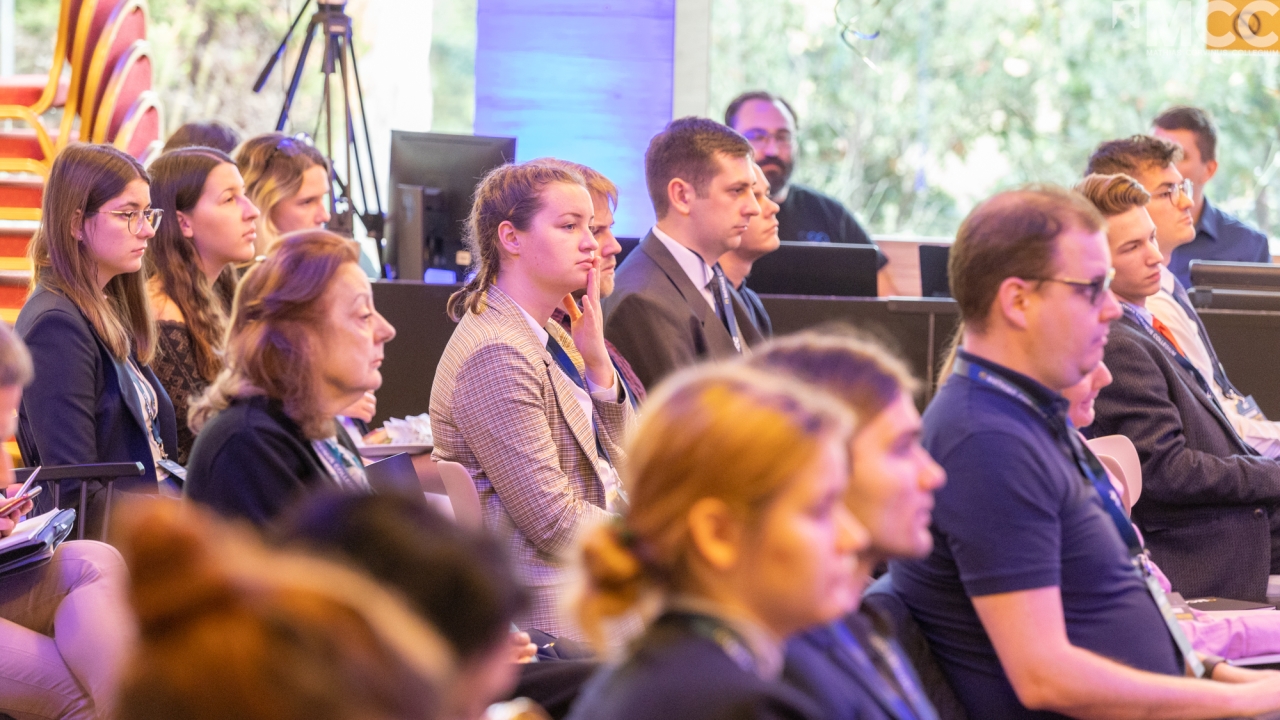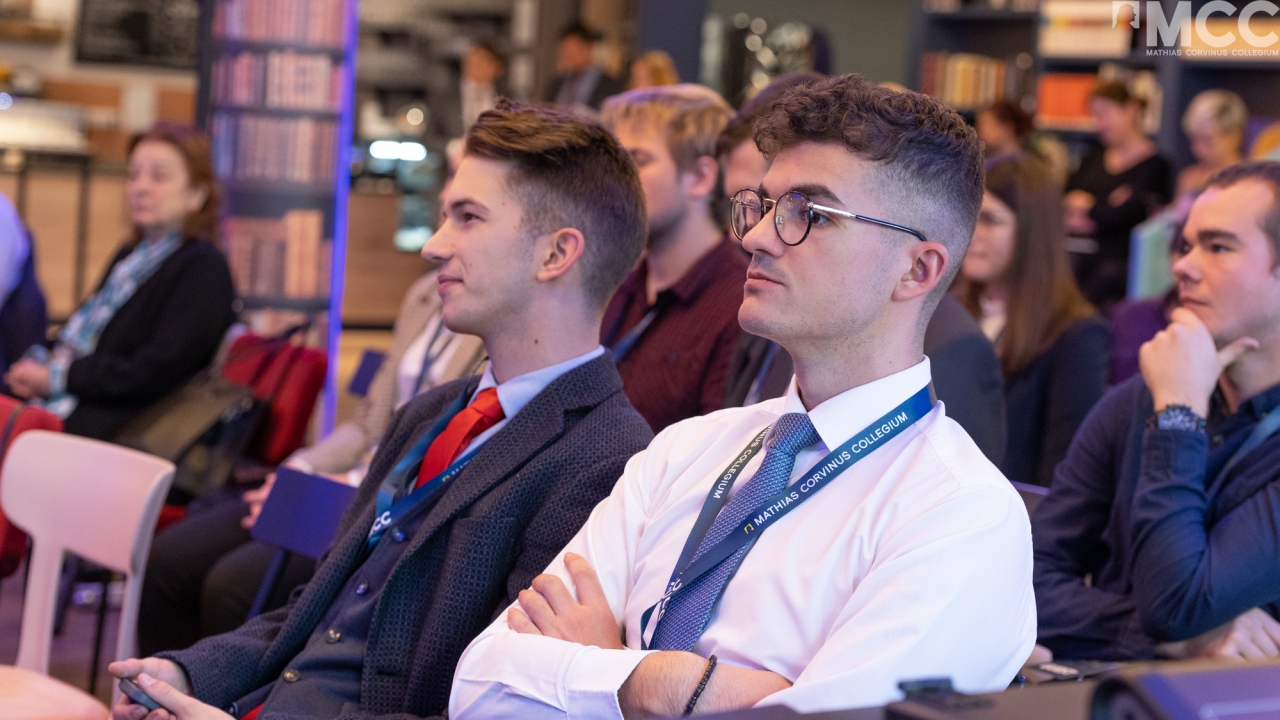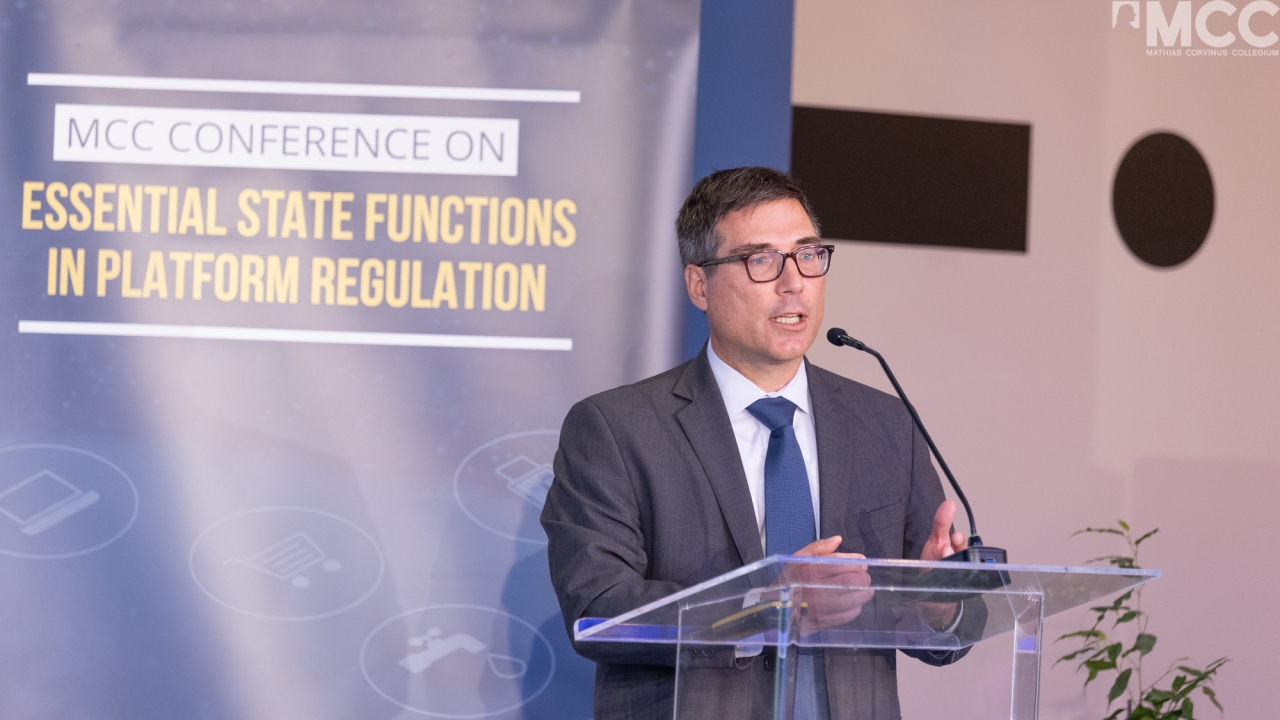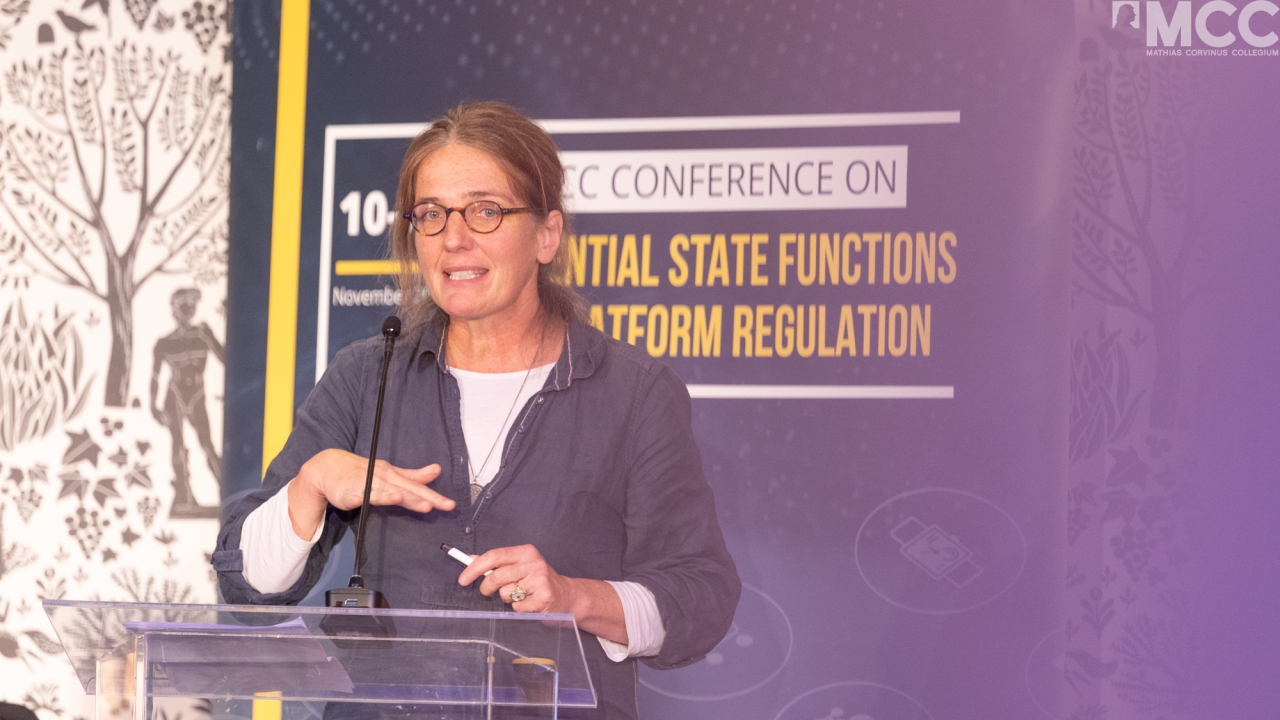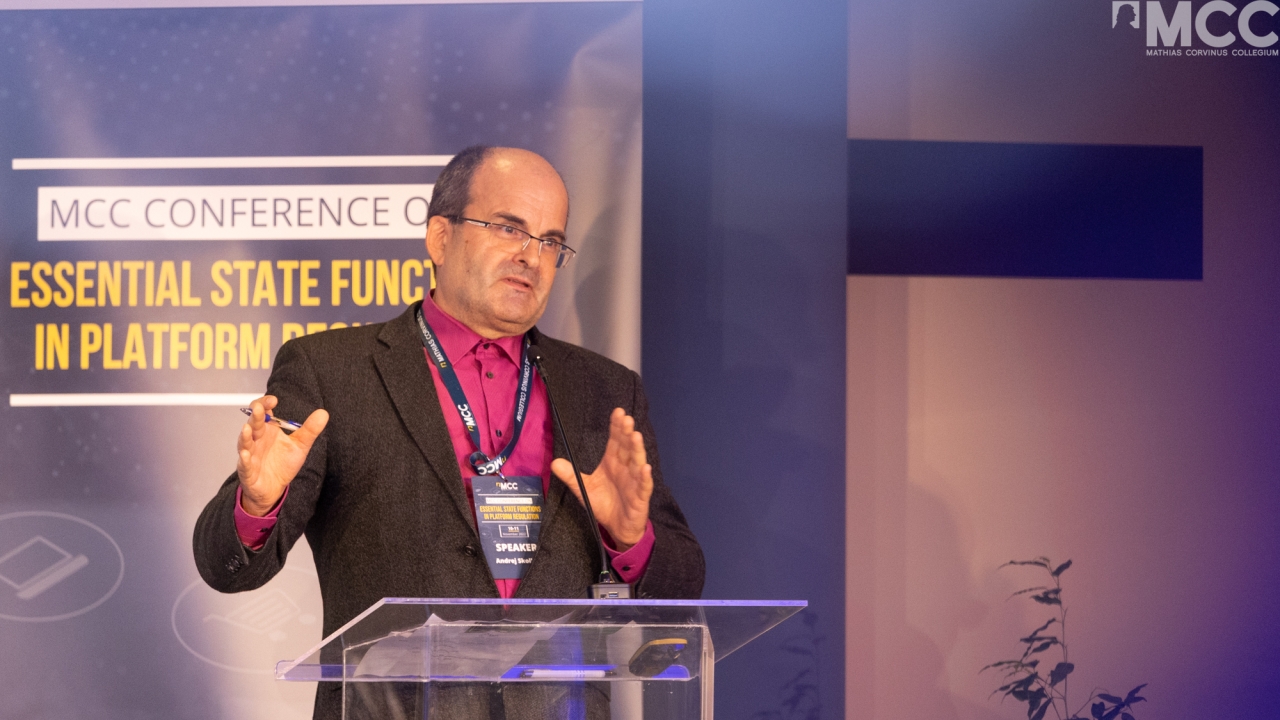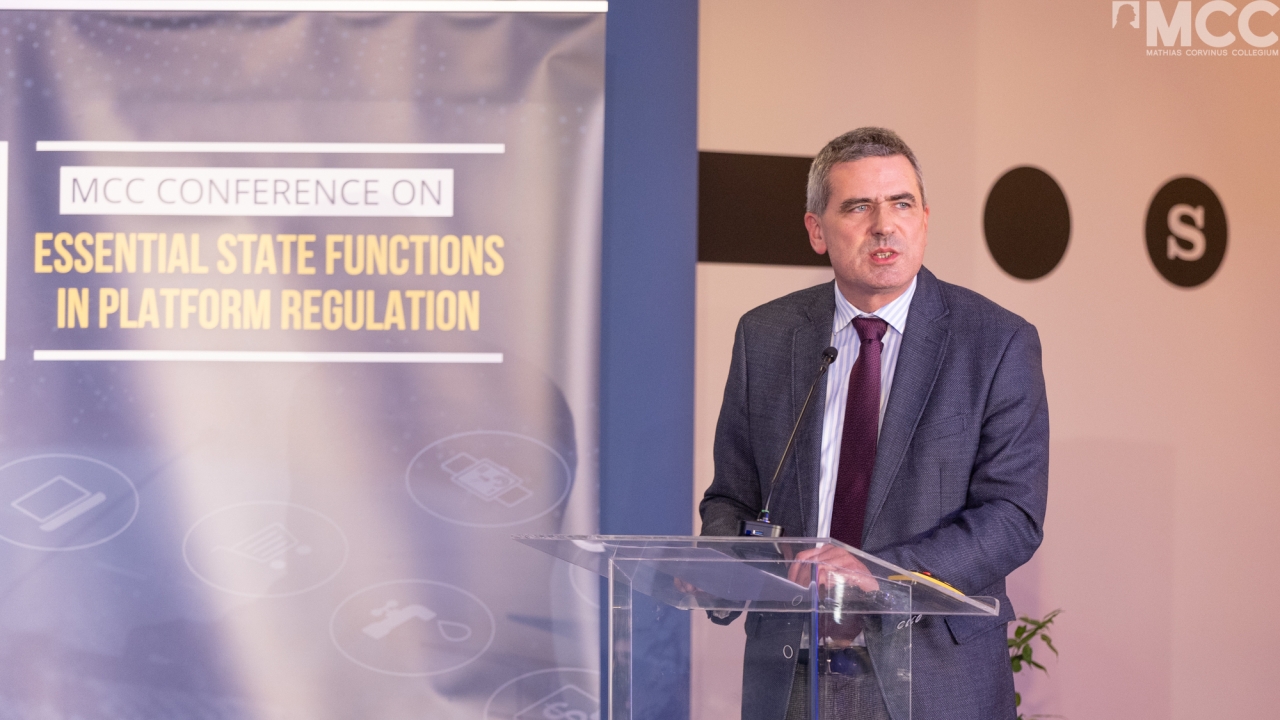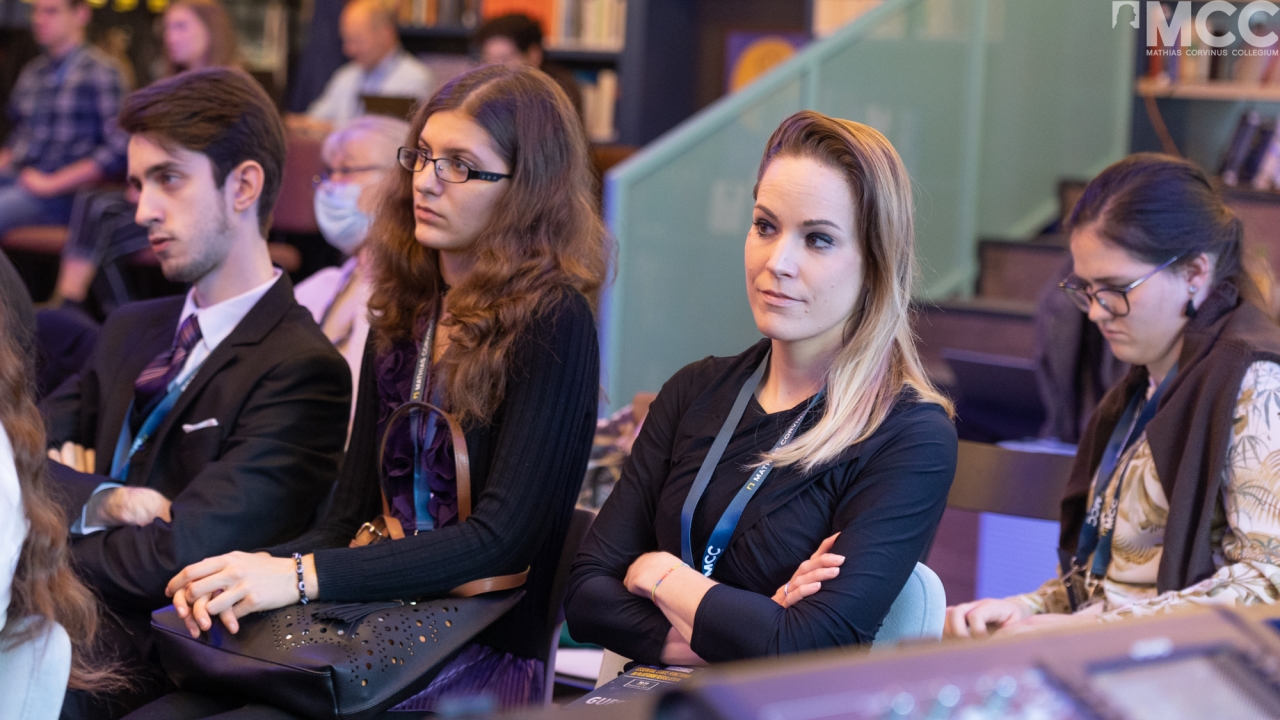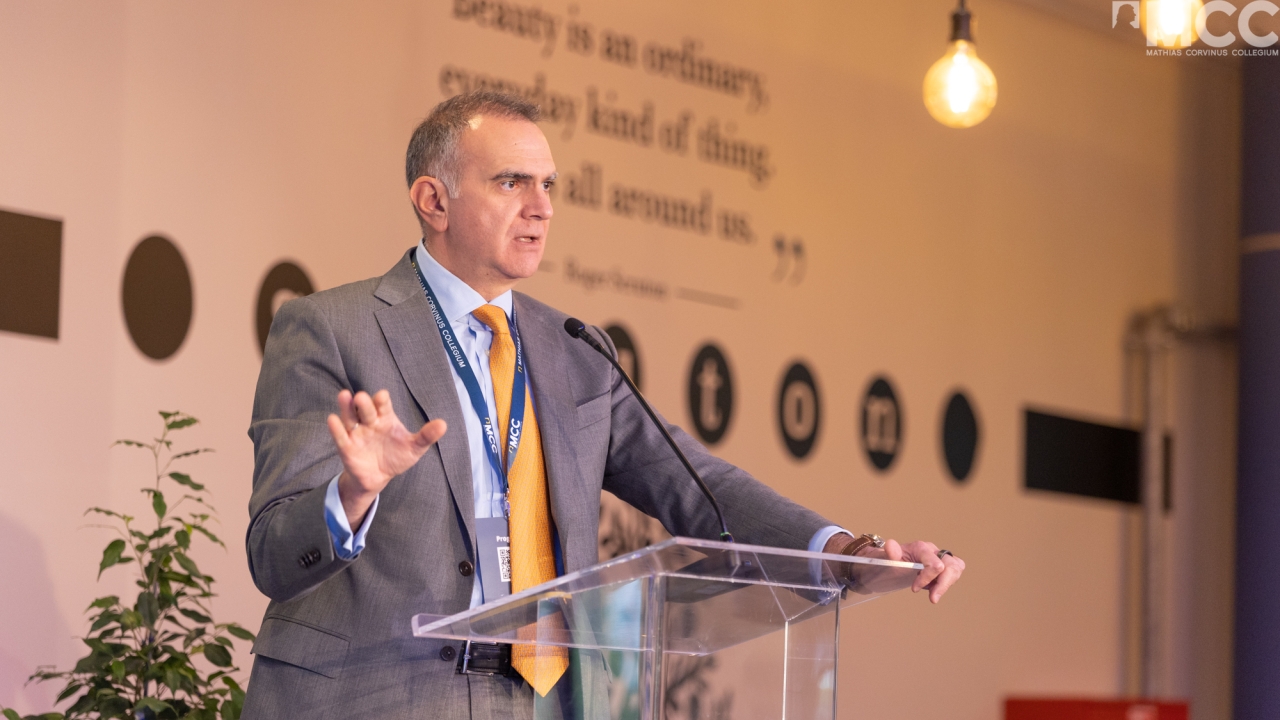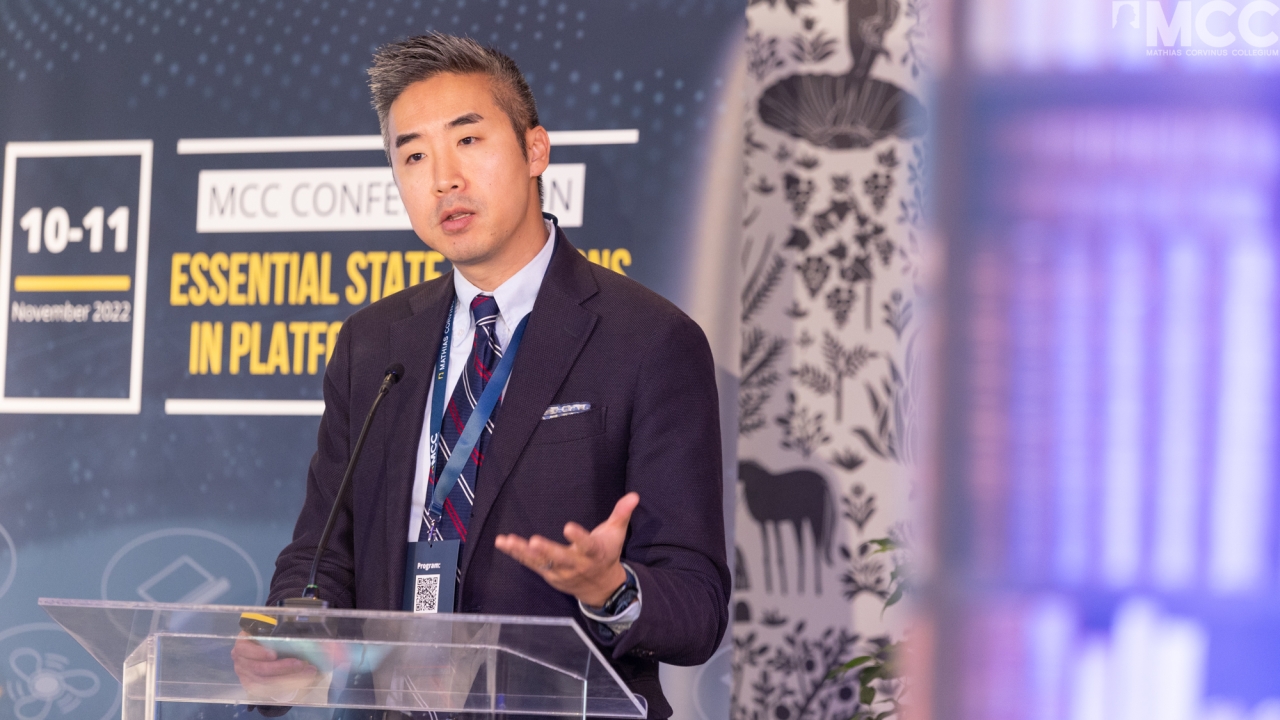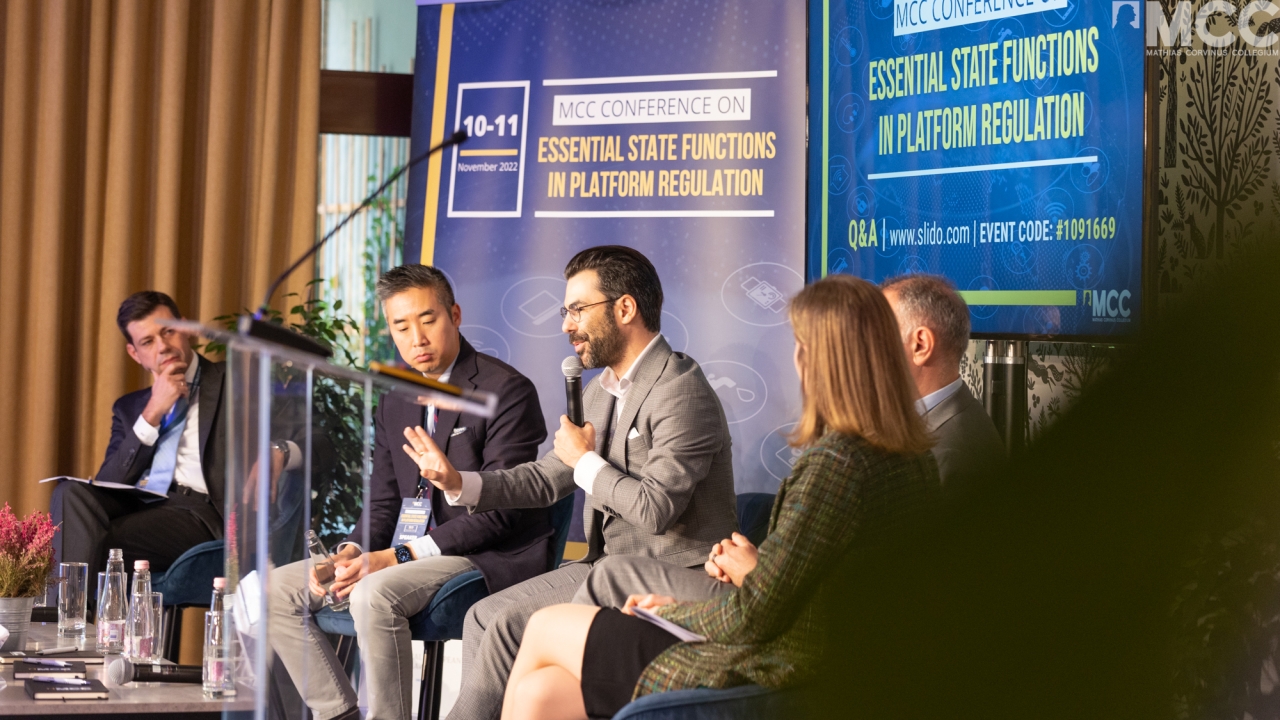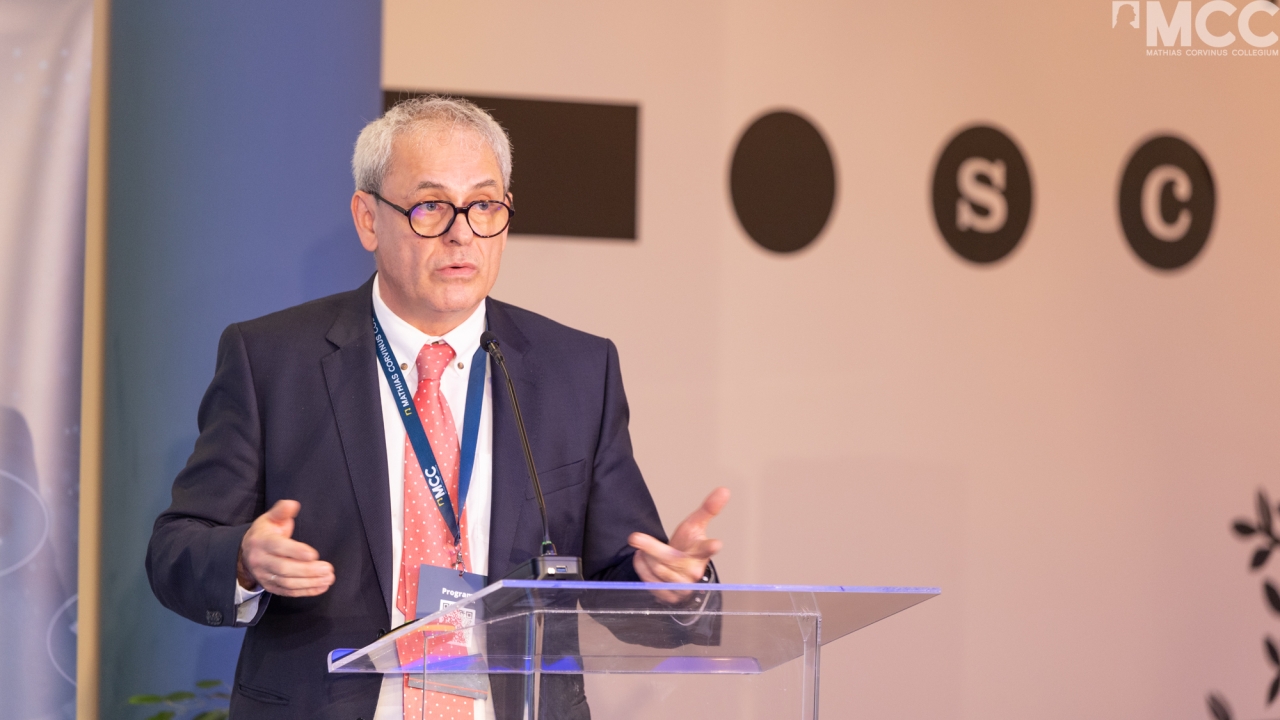Reading time: 3 minutes
The event venue of MCC Scruton housed the two-day international conference titled Essential State Functions in Platform Regulation, that came to life as a cooperative idea of more professional organizations. The conference focused on the challenges, the opportunities, and the necessity of the legal regulation of online platforms in light of what essential functions might states have in this domain. The question is especially important in light of the fact that in Europe, EU-law contains a multitude of rules to improve its global positions in the sector and these obviously affect those legal rules that the Member States enact to regulate the operation of platforms.
In his keynote address, Prof. James Cooper, Director of the Economics and Privacy Program at George Mason University in Washington D.C. has demonstrated the process with the methodology of ‘law and economics’ that sheds light on how privacy-conscious people really are and how big a role privacy protection plays in individual decisions regarding the use of certain platforms. After presenting the social costs and benefits of privacy, he introduced the so-called “Privacy Paradox” and examined what kind of consequences could and should state regulators draw from the above-mentioned information when creating rules for platform regulation. Mentioning European examples, he inferred that regulators also have the choice to do nothing and decide to preserve the status quo. He presented many American studies and statistics justifying the assertion that increased legislation will result in the reduction of the social benefit of data usage and reliance on the achievements of digital innovation. This is against any benefit to consumers, who wish to make use of higher level digital services in their every-day life.
Dr. Balázs Bartóki-Gönczy, member of the Media Council of the Hungarian Telecommunication Authority presented the current status and challenges of the American and European regulatory environment in his field, and reflected on those legislative materials and proposals by European Member States that are noteworthy in the field of social media and as such have provoked significant debates in the Member States. In connection to the EU DSA, the Digital Services Act, he analyzed some practical problems and the list of national legislative duties, then tries to account for the possible essential state functions in platform regulation, framed by the title of the conference. As a precondition to any eventual regulation, he mentioned the necessity of creating transparency as to the operation of the platforms as a matter of principle, then concluded his keynote address by stating that the state has essential functions in protecting the market, the users and democracy, which shall be carried out through regulation.
First among the professional panel discussions of the two-day event was a panel on media- and content regulation, where academic experts talked about current European, Hungarian, Slovakian, as well as Anglo-American occurrences. Among these, issues of intermediary liability in the common law judicial experience were addressed through examples of numerous countries, as well as the legroom of the state to define disinformation or harmful content in terms of hybrid threats. Other lectures and discussions talked about such activities and roles of platforms that in essence are similar to essential state functions or replace those, and therefore their regulation is not or not exclusively considered such a state function.
The competition and data protection law panels were on the agenda of the second day, in which practicing attorneys, professional diplomats, former and current officials of regulatory bodies as well as civil society and academic experts (with backgrounds in law and economics) exchanged views on the topic. Our international guests arrived from Serbia, Greece and the United States to share with us their experience on the Digital Markets and the Digital Services Acts as regards the content and the possible future of the European legislation.
